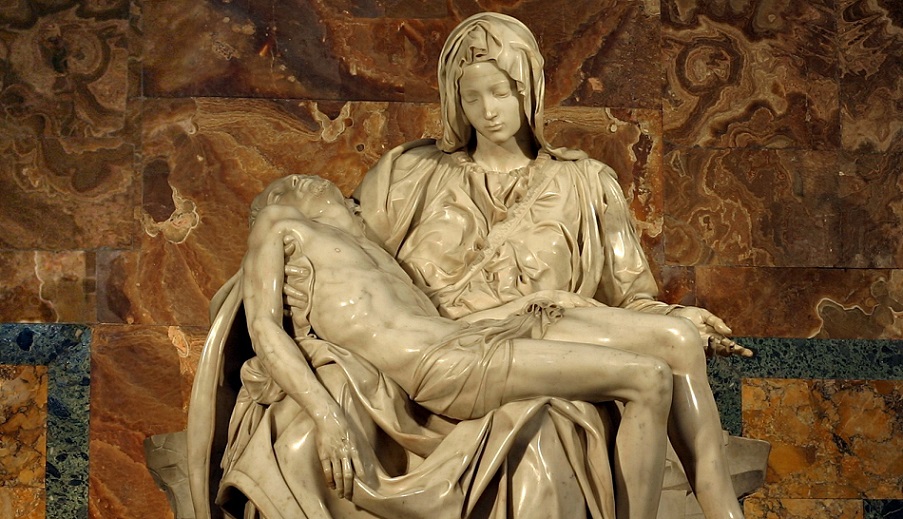.
Once
Once he was finally dead; once just a piece
Of meat nailed to the planks of scabrous wood;
Once suffering had done all that it could
To him before it ceded him release;
And once it seemed that evil no surcease
Or reasonable limit understood
And thereby the nobility and good
Of human motive rendered mere caprice;
Then earth, depleted, lost, benumbed with grief
Did with a ravaged tenderness enfold
The shattered flesh within her cold embrace
And sealed it with a stone of unbelief.
But there was something here no tomb could hold:
A life that death and unbelief displaced.
.
.
Jeffrey Essmann is an essayist and poet living in New York. His poetry has appeared in numerous magazines and literary journals, among them Agape Review, America Magazine, Dappled Things, the St. Austin Review, U.S. Catholic, Grand Little Things, Heart of Flesh Literary Journal, and various venues of the Benedictine monastery with which he is an oblate. He is editor of the Catholic Poetry Room page on the Integrated Catholic Life website.















Amen!
This is extremely moving, Jeffrey. That evil has no reasonable limit; that earth enfolded Him with a “ravaged tenderness”; that the stone represented unbelief; that no tomb could hold His life — these are all profound truths made more visible by their expression here.
A very beautiful and powerful sonnet, wrapping a complete idea of resurrection and redemption in a small space. The language is as perfect, smooth, and chiselled as the Pieta sculpture that illustrates it. I am reminded of certain 17th-century religious poems.
Lovely poem. Austere yet hopeful as as the day itself.
Great and timely poem! I really liked the “stone of unbelief” metaphor. Just like the father of the demon-possessed boy in Mark 9, we’re all held back from receiving what is already ours by a little unbelief.
A beautiful meditative sonnet. I especially like your ending: associating death and unbelief, and how it was those forces that snuffed out life – which yet survives ( a very subtle allusion to the coming Resurrection).
Jeffrey, your words are powerful and beautiful. The horror gives way to awe… and the glory that shines in the closing couplet is the miraculous reason for today’s celebration. Very well done indeed! Thank you!